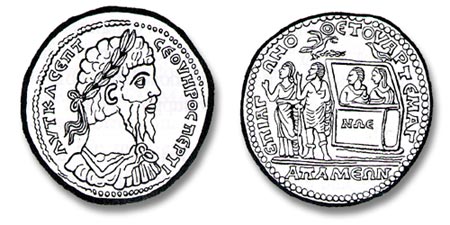A recent article in the NY Times (see http://www.nytimes.com/2012/10/01/arts/design/turkeys-efforts-to-repatriate-art-alarm-museums.html?nl=todaysheadlines&emc=tha2_20121001) raises once again the question of what belongs to whom, when it comes to precious antiquities. The Turkish government is now playing hardball to retrieve various artifacts from the Met in NYC, even though, the UNESCO treaty of some years ago has been followed when it comes to such situations. But here’s the problem.
Countries and empires come and go. What belonged to one country, belongs to another when borders change and bondaries alter. I’ve spent plenty of time in Istanbul’s fine museums including their main archaeological museum, and it is full of stuff plundered by the Osmanlis (the correct name of the so-called Ottomans— a British barbarization of the correct name). For example, there is the famous Geza calendar, and indeed the warning placard posted in the Jerusalem temple about Gentiles not entering the Holy Place. These things were taken from Jerusalem and carted off to Turkey. This is just as egregious a theft as the taking of the temple of Zeus from Pergamon all the way to Germany. Another egregious example is the so-called Elgin marbles in the British museum, which by rights belong in the new Parthenon museum since they are in fact part of the Parthenon frieze!
If a rule was made that all artifacts have to be left in the geographical spot where they were found, most major museums in Europe and America that have millions of items from the Middle East would have large empty spaces in their museums. This might solve the problem of theft, to a certain degree but, it would not promote co-operation and education about the Biblical world through archaeological objects in the various non-Biblical lands of the world.
And then of course there is the ongoing headache about the issue of provenance. Many items exist in major museums and honestly we do not know where they were looted from, or who initially took them, or who sold them. And in many cases we can’t rewind the clock and find out either. Should museums which have such pieces not display them? This seems like obscurantism. Isn’t it better to know about various ancient scrolls and artifacts, to study them and learn from them than to suggest that we simply say because we don’t know where it came from and how, we can’t say anything about them, and should ignore them?
And of course, there is the issue of forgery. It’s always a bad thing, but if there was no market for purchasing pieces of antiquity, the forgery trade would dry up. Nobody is out there today secretly manufacturing perfect replicas of 1920s vintage thumb tacks and making a profit by passing them off as genuine. There just isn’t a market for them. You get my point. To some extent the issue is what people deem to be precious, valuable, worth saving, worth having. If we didn’t care about history, and objects found in the ground from the past, there would be little or no market for selling such objects. It is the human acquisitive instinct combined with a love for history and antiquities that fuels the dark forces of looting and forging.
It appears to me then that while there should obviously be rules about returning things to their original owners, or original countries of origin, that these rules cannot be hard and fast rules or else no museums in the world would ever own and display objects from other parts of the world, and we would all be more ignorant and culturally poorer for such a hard line policy.
I’m afraid then that the Turkish officials have crossed the line if you read the article carefully, by trying to play hardball, not least because the Osmanlis were some of the worst offenders when it came to stealing things from Greece and Lebanon and Syria and the Holy Land. Hopefully sanity will prevail and good loan agreements will continue to be forged and adopted, not least because, it is true that many European and American museums have done a far better job of protecting some of Turkey’s treasures than Turkey itself has done in its many museums with many unprotected treasures.
I’ve been to a myriad of Turkey’s museums, and in many cases you have precious antiquities simply lying outside in the courtyards of the museum rotting away or crumbling. There just isn’t space enough in all of Turkey’s museums to properly house all its burgeoning collections of antiquities. And that’s a fact.












